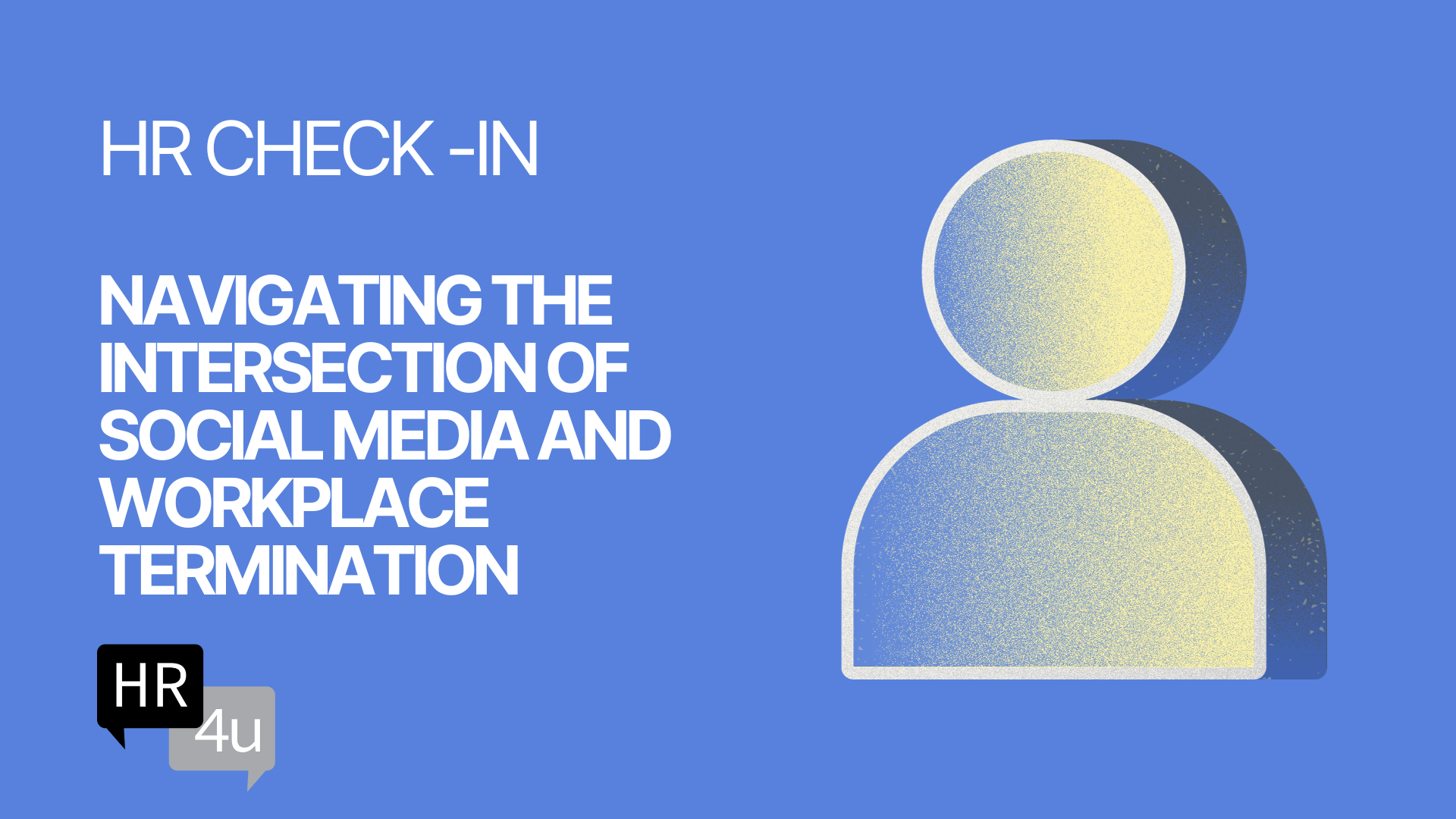In this edition of HR Check-In, we explore a topic that has become increasingly relevant in today’s digital age – the termination of employees based on politically controversial posts on social media.
The Balancing Act: Employee Rights vs. Company Interests
In an era where social media platforms serve as a global speaker’s podium for expressing personal views, employees’ online activities are often under scrutiny by both their peers and employers. The question of whether a company can terminate an employee based on their politically controversial posts is a complex one, necessitating a careful balancing act between individual rights and company interests.
Free Speech vs. Workplace Policies
First, it’s crucial to understand that freedom of speech is a constitutional right in many countries, but it doesn’t grant individuals absolute protection from professional consequences in all circumstances. Employers are typically allowed to define workplace policies and expectations, including guidelines related to employee conduct on social media.
Key Considerations for Employers
1. Company Policies: Companies should establish clear social media policies that set expectations for employee behavior online. These policies should address issues such as respectful communication, disclosure of affiliation, and the potential impact of employees’ online posts on the company’s reputation.
2. Public vs. Private Speech: The distinction between public and private speech is critical. If an employee is making controversial statements on their personal social media accounts that are not directly linked to their workplace, it can be challenging for employers to justify termination based on these posts.
3. Relevance to Work: Employers should evaluate whether the content of an employee’s posts directly impacts their ability to perform their job. If there is a clear connection between the posts and the workplace, action may be more justifiable.
4. Consistency: It is essential for employers to apply their policies consistently. Inconsistently enforcing social media guidelines can lead to legal complications.
5. Legal Protections: Depending on the jurisdiction, certain legal protections may come into play. For example, in some cases, employees may be protected by labor laws, anti-discrimination laws, or whistleblower protections.
The Delicate Balance
Terminating an employee based on their politically controversial social media posts should not be a knee-jerk reaction. Companies must weigh the potential impact on their business, their commitment to free speech, and the legal and ethical considerations surrounding the specific situation.
The decision to terminate an employee based on politically controversial social media posts is a complex one, requiring careful deliberation. Companies should establish clear social media policies, evaluate the relevance of posts to the workplace, and ensure consistency in enforcement. Balancing individual rights with company interests is an ongoing challenge that requires a nuanced approach.


